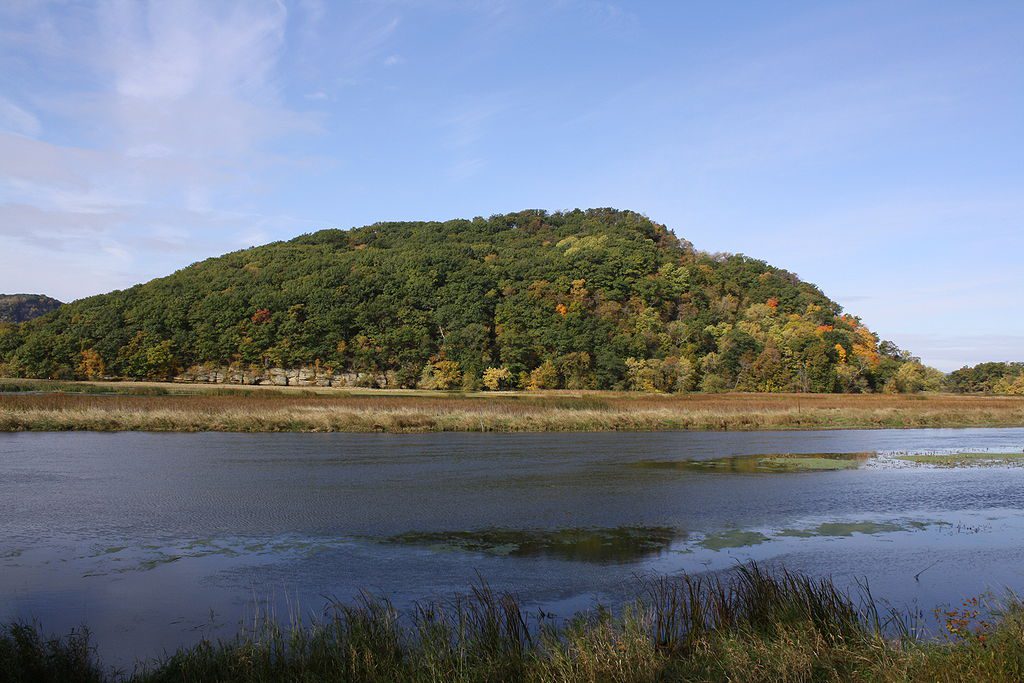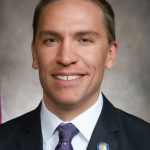Farmers, Environmentalists Applaud Water Quality Trading Bill
GOP bill would create a clearinghouse to trade credits from reducing water pollution.

Trempealeau River. Photo by By Royalbroil (CC BY-SA 3.0)
Wisconsin farmer groups and environmentalists are voicing support for legislation to create a clearinghouse for trading credits from reducing water pollution.
Current state law allows point-source polluters, such as wastewater treatment plants and factories, to meet their pollution reduction goals by funding pollution reduction at non-point sources, like farms and residential areas. Purchasing the water quality credit allows point-source polluters to comply with their permits from the state Department of Natural Resources.
But water quality trading hasn’t been popular in Wisconsin and stakeholders say it’s because setting up the trades can be difficult. That’s why Republican state Sens. Robert Cowles, of Allouez, and Jerry Petrowski, of Marathon, and state Rep. Joel Kitchens, of Sturgeon Bay, want a private company to create a clearinghouse to facilitate trades.
“Water quality trading is not a new idea, but the inflexibility of the current process, along with troubles facilitating direct trades between point and non-point sources, has left Wisconsin with only a couple of handfuls of trades,” said Cowles in a statement about the bill. “Developing a robust marketplace through a third-party clearinghouse would provide the framework necessary to make water quality trading a success.”
Several farmer groups support the measure, including the Wisconsin Farm Bureau, Wisconsin Corn Growers Association and the Dairy Business Association.
“It’s an opportunity for farmers to implement new conservation practices and make investments in water quality technologies that would ultimately lessen their environmental impact which may have not been cost effective to implement or install before,” said Aaron Stauffacher, the Dairy Business Association’s associate director of government affairs.
Stauffacher said credit trading could be a reliable source of income for farmers, allowing them to invest in long-term pollution reduction on their operations.
Some environmental groups in the state are also applauding the proposal. Amber Meyer Smith, vice president of programs and government relations for Clean Wisconsin, said she thinks new ways to solve this problem only help.
“This is a very serious problem in our state and controlling phosphorus pollution is especially something that we need to be focused on,” Meyer Smith said. “More productive and cooperative solutions are always welcome in this space.”
But Meyer Smith said her group will be watching to make sure the legislation will keep credit trading within the same geographic area.
“We don’t want the geographic scope of this bill to be so large that you’re seeing a reduction in pollution happen in northern Wisconsin and credit for that in southern Wisconsin where it’s not helping,” Meyer Smith said.
She said accountability for reduction projects will also need to be built into the clearinghouse process to make sure pollution is actually being reduced.
Kim Wright, executive director for Midwest Environmental Advocates, also said measurability of pollution reductions would be crucial for the new trading system. Wright said it’s too early to tell if the proposal would be good or bad for water, especially without details about how the third-party structure would affect DNR budgets.
“Many potential water protections, especially controls for ag runoff are hampered by lack of resources,” Wright said in an email. “We’ll be looking at the structure with regard to funding existing entities or the creation of a new entity and how that may impact already tight funds.”
Listen to the WPR report here.
Farmers, Environmentalists Applaud Legislation To Change Water Quality Trading was originally published by Wisconsin Public Radio.






















So rather than deal with the water quality problems caused by “factory farming” lets help them dodge this issue and continue on their mission to displace smaller family farms throughout the state?
The Journal had a recent article on this issue, it states….
“……the size of big dairy herds and managing cattle waste have become increasingly contentious in northeastern Wisconsin and figure prominently in a larger debate over how best to address water problems tied to farming…….“Their environment will still be degraded and their property values will still be impacted. Somebody is going to make money on these pollution credits, but it won’t be the people who are directly impacted by pollution,” said Mark Kastel, founder of The Cornucopia Institute, a Wisconsin-based group that studies agriculture and food policy issues……..Big livestock farms, known as Concentrated Animal Feeding Operations or CAFOs, would benefit from being able to purchase pollution credits, according to Kastel…..“This will equate to nothing more than a cost of doing business for some of these large livestock factories,”…….
Sounds like Whimpy from the Popeye cartoons, “I’ll gladly pay you Tuesday for a Hamburger today.”
The first three words of this story, “Wisconsin farmer groups”, might lead you to think that small, independent farmers are in favor of this bill. But it is helpful if you remember to always substitute Wisconsin Farm Bureau and DBA with the words “factory farms”. These organizations are fronts for the CAFOs that are destroying Wisconsin’s family farms. That is who supports this bill, not Wisconsin family farmers.